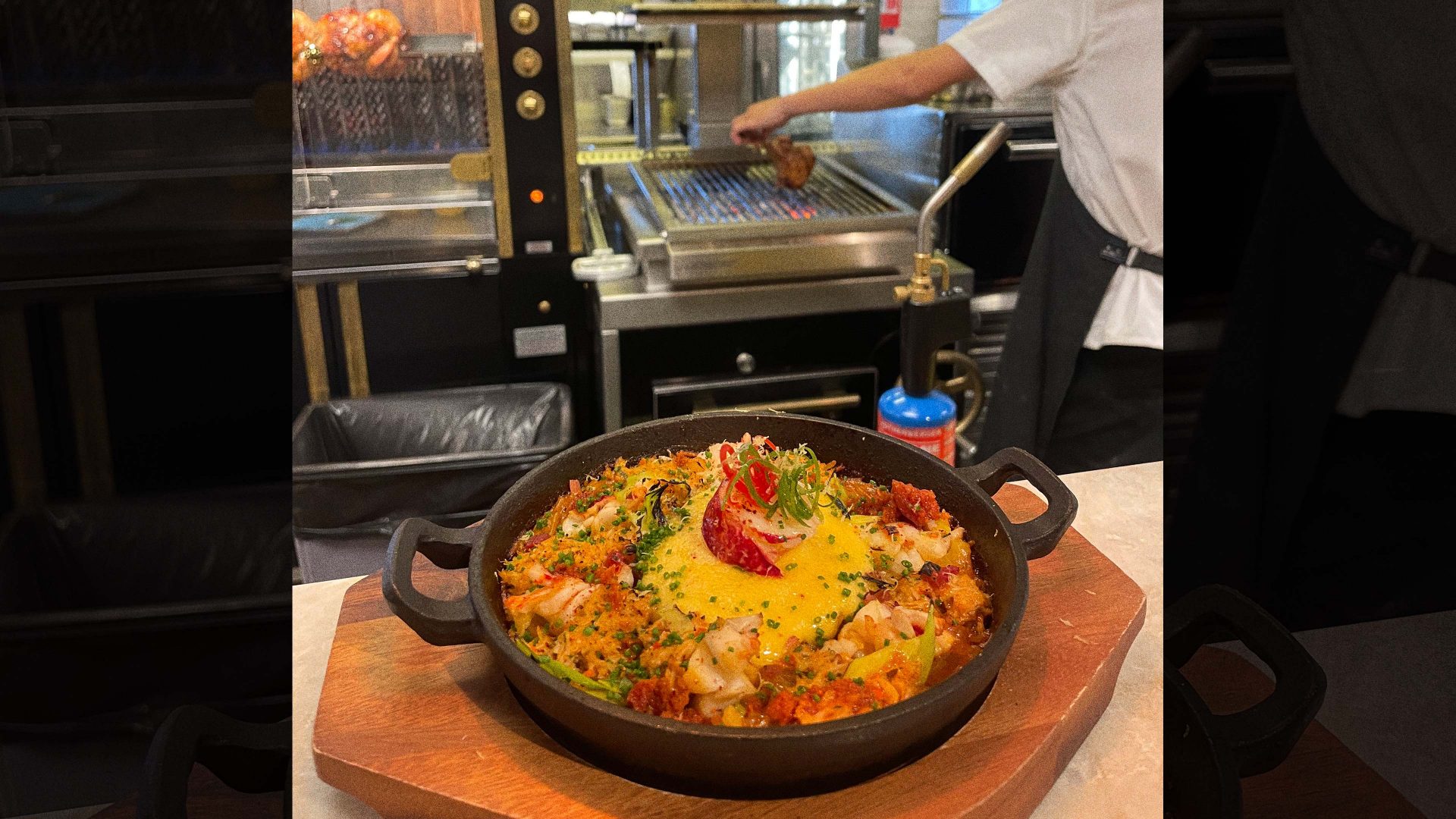In much of the UK today, you can’t move for Spanish food – for tapas. Chefs like José Pizarro pitched up in the late 1990s and explained that, no, actually, Spain isn’t just a place for package holidays, it’s full of octopus and handkerchiefs of excellent ham. Croquetas were once a novelty, today they are almost as ubiquitous as sausage rolls.
Other chefs followed Pizarro. Nieves Barragán’s Mayfair joint Sabor is a wondrous place for tortilla gallega and sherry; Eneko Atxa helped to fuel a serious passion for Basque cooking, and then came a wider acknowledgement of high-end Iberian food, Portugal included. Look at Nuno Mendes at Lisboeta; Henrique Sá Pessoa at Joia.
It isn’t just London any more and it isn’t just Iberian chefs cooking. We British love to take on cultures and food and then incorporate it, mould it, recalibrate and churn out and construct. Sometimes we destroy (Jamie Oliver: jerk chicken), occasionally we create marvellous things – Monika Linton of Brindisa showed impressive foresight – and fusions.
I love that in much of Britain you can eat just about anything from anywhere. On Tuesday, I ate Japanese food at Niju; on Wednesday, what might be called English cuisine at St John – ox heart, shaved and roasted with a salad; on Thursday I had an Irish pie full of lamb.
Spanish food is a frontrunner and it has traversed cities. Chefs such as Tomos Parry cook Basque-style dishes at Mountain in Soho, using Welsh ingredients, and chef Simon Shaw has carved out something of a niche in Manchester with accessible, fun tapas at El Gato Negro restaurants across town.
It has gone further still. I hardly thought quality Spanish cooking would arrive at the far reaches of west Cornwall, where fish and chips and pasties make up a hefty percentage of the diet. This is a part of the county that is home to a brand called The Meadery: medieval-style feasting halls where women dressed as “wenches” deliver whole, deep-fried chickens before inviting customers up to the salad bar.
But it is 2024 after all, and that’s down to a chef called Dorian Janmaat, half Dutch, half Cornish. There is no industry more inclusive, multicultural and international than hospitality. Well, maybe sport.
Anyway, Janmaat’s new venture is Ardor and it’s tucked away inside the winding lanes of St Ives, a town perfectly positioned for anyone who enjoys top seafood. He is taking up crab, langoustines and lobster, seasonal fish caught daily, and the best of West Country meat and serving them à la coastal Spanish town, most likely somewhere in the north-east of the country.
And so, in St Ives, where bucket and spade meets the RNLI, where elderly couples wander art galleries and witches play the banjo on the seashore, a Dutch chef in Cornwall is cooking line-caught mackerel, landed metres away from his front door. Janmaat fills his fish with red peppers, onions and lemon, and he takes chorizo and puts it on flatbreads, cooked on the charcoal grill, and he lays sprightly anchovies across well-oiled sourdough bread, baked not far away.
There is, at Ardor, a fine Duroc (sourced from Spain) pork chop swimming as mackerel in butter, topped with herbs, fat rendered before being crisped up and torched by flames. There are delicate croquetas (of course there are) and a pasta of crab, garlic and chilli that I would suggest rivals most others in Britain.
Probably the best dish of all isn’t on the menu, but available upon request: rice is cooked in lobster stock and butter before it is baked in a hot oven then jewelled with plump Cornish lobster. An aioli is then laid across the top, as are finely sliced chives.
This, in Cornwall. The most rural and traditional of counties. There is often talk about Spanish conquistadors, sailing in the 1600s, sometimes landing in Ireland and meeting women whose husbands were busy fishing. Maybe this happened in Cornwall, too – I think it probably did – because this sort of indulgent, buttery food works so well even in the most westerly of cobblestone towns.




